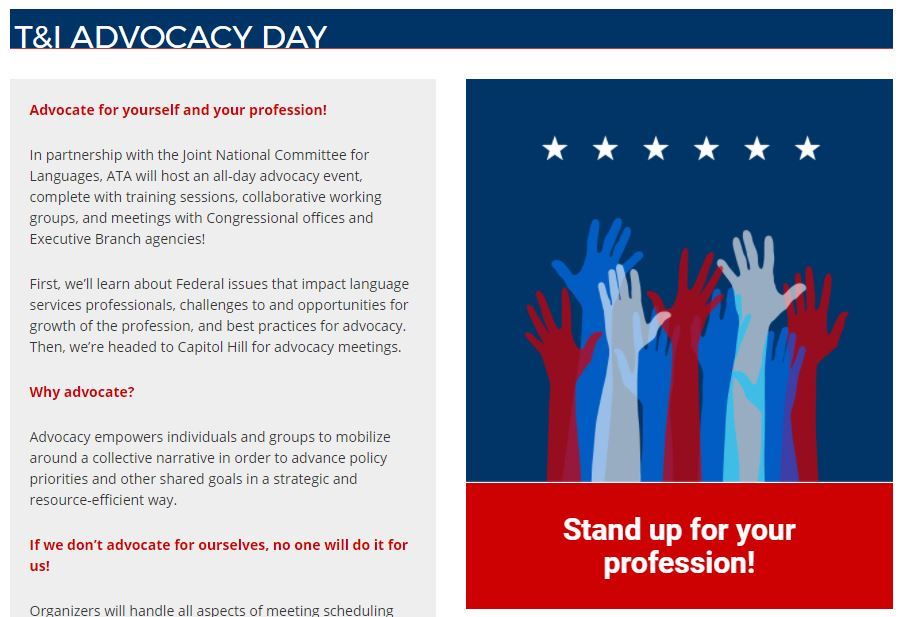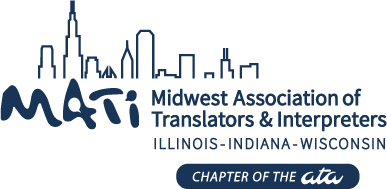Why Translators and Interpreters Should Tackle Advocacy
By Kristy Brown Lust, MATI Director
Local, state, and federal lawmakers are tasked with creating legislation that regulates hundreds of industries. They rely on professionals from those fields to provide context and help them understand what is at stake for professionals working in the industry and how laws impact the people and businesses who use our services. As experts whose field deals with every industry imaginable, translators and interpreters are ideally situated to provide this context to help lawmakers understand the challenges our clients face, as well as the value we provide as language professionals.
Civic engagement through advocacy is one way translators and interpreters can increase the visibility of our profession and, more importantly, assist lawmakers in crafting legislation that best serves and supports our various constituents. This includes everyone from patients in healthcare settings to military personnel working in other countries.
The Certification Commission for Healthcare Interpreters recently hosted a free webinar that outlined how language professionals could approach advocacy. One advocacy issue mentioned was meaningful language access requirements for patients with limited English proficiency in healthcare settings. While the specific focus was interpreters working in healthcare, their lessons are widely applicable for all language professionals. The session included presentations from Don Schinske with Cal Capitol Group and California Healthcare Interpreting Association and Bill Rivers with the Joint National Committee for Languages and the National Council for Languages and International Studies (JNCL-NCLIS).
Tips for getting started with advocacy:
- Conduct research on current legislation related to your field. Often state and national organizations have legislative agendas that can help you quickly find what upcoming legislation will cover. For example, the JNCL-NCLIS website lists legislation they are tracking.
- Get involved with local and national organizations by signing up for their advocacy action alerts.
- If you’re attending the 2017 ATA Conference in Washington D.C. in October, plan to participate in the T&I Advocacy Day on Capitol Hill.
- Write letters to the editor or individual journalists when you see incomplete or misleading news coverage on translation or interpreting or when you want to share your perspective as a professional working in the field.
Visit CCHI’s website for links to the full presentation audio and other advocacy resources. And check out a recent ATA Chronicle article on the organization’s advocacy and business outreach efforts.
 ATA Advocacy Day Screenshot
ATA Advocacy Day Screenshot
